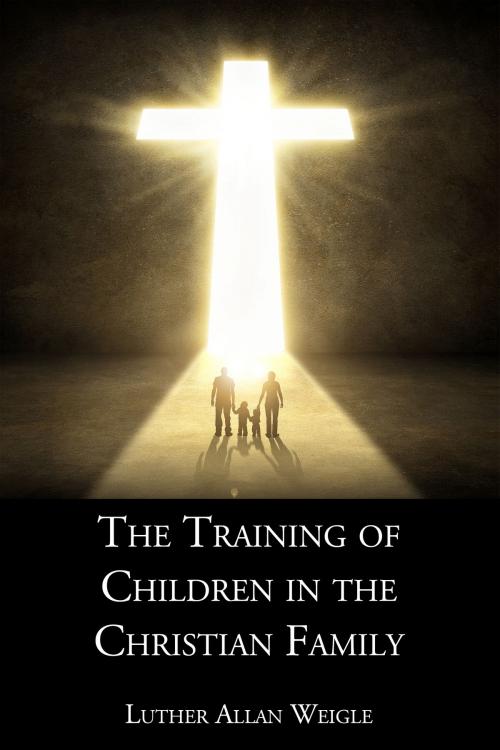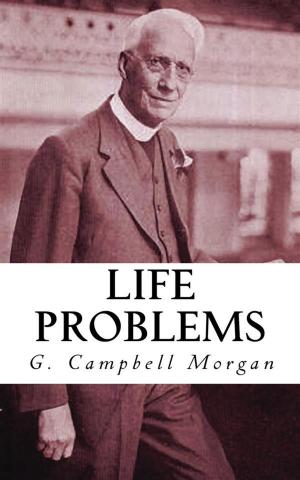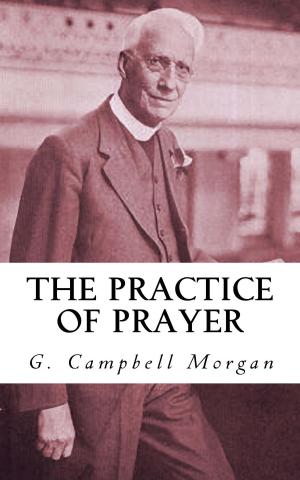The Training of Children in the Christian Family
Nonfiction, Family & Relationships, Parenting, Child Development, Family Relationships, Religion & Spirituality, Christianity| Author: | Luther Allan Weigle | ISBN: | 1230001929942 |
| Publisher: | CrossReach Publications | Publication: | September 24, 2017 |
| Imprint: | Language: | English |
| Author: | Luther Allan Weigle |
| ISBN: | 1230001929942 |
| Publisher: | CrossReach Publications |
| Publication: | September 24, 2017 |
| Imprint: | |
| Language: | English |
A recent conference of educators was discussing the problem of vocational guidance, and canvassing the various ways in which schools and colleges may help young people to decide wisely the all-important question of their occupation in life. One speaker gave pungent expression to a conviction which met with the evident approbation of most of the teachers present:
“I do not hesitate to say that in my opinion the children of today do not need vocational guides so much as they need a new set of parents; parents who have spunk enough to climb back upon the thrones in their own households which they have abdicated in favor of their children; parents who have energy enough to get their children out of bed in the morning early enough for them to wash their faces, comb their hair, and lace their shoes without the schools being obliged to give promotion credit for their doing so; parents who, when the shades of night begin to fall, look after their boys with the same degree of care that they give to their bull pup, which they chain up, lest he associate with the strange cur upon the street. We have state autocracy enough in education; what we need most is authority in the home.”
An utterance of this sort, propounded glibly, wins ready assent; but later begets misgivings. Just what sort of authority, we begin to wonder, did the speaker have in mind? Parents need more than spunk or energy if they are to deal wisely with their children; chaining up is a poor way to care for boys; and no household ought to have a throne. The speaker’s phrases have a backward-looking, monarchical air about them that makes us pause.
Yet his main point is true. The children of today do need a new set of parents. Better schools, more playgrounds, efficient health organizations, adequate laws properly enforced, social settlements, boys’ and girls’ clubs, and churches that have caught the vision of their educational opportunity and responsibility, may do much to determine the character of the next generation. But beneath all these, and more vital in its influence than any, is the home life of the child. Failure there is fundamental. And too many homes of today are failing, at one point or another, to be all that they ought to be, and to do all that they ought to do, for their children.
The fundamental principles of child-training remain the same for generation after generation, for they depend in part upon the natural laws of the child’s growth and development and in part upon the essential principles of human morality. Yet the particular problems of parents change with changing material and social conditions; new methods of observation and experiment bring more assured knowledge of the facts and laws of child-life; and moral ideals themselves develop as the race grows in experience.
A recent conference of educators was discussing the problem of vocational guidance, and canvassing the various ways in which schools and colleges may help young people to decide wisely the all-important question of their occupation in life. One speaker gave pungent expression to a conviction which met with the evident approbation of most of the teachers present:
“I do not hesitate to say that in my opinion the children of today do not need vocational guides so much as they need a new set of parents; parents who have spunk enough to climb back upon the thrones in their own households which they have abdicated in favor of their children; parents who have energy enough to get their children out of bed in the morning early enough for them to wash their faces, comb their hair, and lace their shoes without the schools being obliged to give promotion credit for their doing so; parents who, when the shades of night begin to fall, look after their boys with the same degree of care that they give to their bull pup, which they chain up, lest he associate with the strange cur upon the street. We have state autocracy enough in education; what we need most is authority in the home.”
An utterance of this sort, propounded glibly, wins ready assent; but later begets misgivings. Just what sort of authority, we begin to wonder, did the speaker have in mind? Parents need more than spunk or energy if they are to deal wisely with their children; chaining up is a poor way to care for boys; and no household ought to have a throne. The speaker’s phrases have a backward-looking, monarchical air about them that makes us pause.
Yet his main point is true. The children of today do need a new set of parents. Better schools, more playgrounds, efficient health organizations, adequate laws properly enforced, social settlements, boys’ and girls’ clubs, and churches that have caught the vision of their educational opportunity and responsibility, may do much to determine the character of the next generation. But beneath all these, and more vital in its influence than any, is the home life of the child. Failure there is fundamental. And too many homes of today are failing, at one point or another, to be all that they ought to be, and to do all that they ought to do, for their children.
The fundamental principles of child-training remain the same for generation after generation, for they depend in part upon the natural laws of the child’s growth and development and in part upon the essential principles of human morality. Yet the particular problems of parents change with changing material and social conditions; new methods of observation and experiment bring more assured knowledge of the facts and laws of child-life; and moral ideals themselves develop as the race grows in experience.















